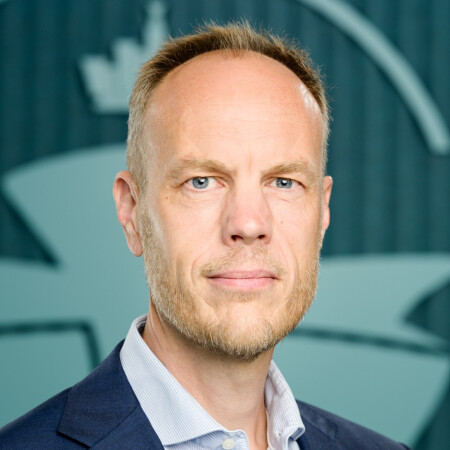
Exhaust Gas Cleaning System (EGCS)
Implement a global standard for wash water discharges from Exhaust Gas Cleaning Systems (EGCS).
Why is this important?
A lot of ships have been or are being equipped with an Exhaust Gas Cleaning System (EGCS). An EGCS is a system that as the name suggests washes sulpher out of the ships exhaust gasses. An ECGS has several additional advantages:
Besides washing out sulphur an EGCS will also wash out particulate matter from the exhaust gasses.
An EGCS in combination with a CO2 capture system can currently remove up to 30% of CO2, and probably soon around 80%.
When looking at the well-to-wake life cycle, combining high-sulphur heavy fuel (HFO with 0,5% sulphur) with an EGCS has a lower footprint then a ship using low-sulphur heavy fuel (HFO with -0,1% sulphur or diesel oil)
For the climate, an EGCS appears to be a relatively good solution. But EGCS has been put under the magnifying glass because the use of 'wet EGCS' result in discharge water. This discharge water contains harmful components that have been washed out of the exhaust gasses. This water used for cleaning the exhaust gasses will usually be post-treated and cleaned until it is in compliance with the set standards. After which, depending on the EGCS, will be disharged. Environmental organisations and several coastal states are nonetheless quite concerned about the effect that post-treated EGCS discharged water will have on the marine environment when discharged in sea.
Key terms
Sulphur content
SECA
EGCS
Discharge water
How should we solve it?
In this discussion about the effects of discharge water, the KVNR is of the believe that the focus should be on the quality of the post-treated wash water and not on the EGCS system itself.
There should not be global, regional or local ban on the discharging of post-treated waswater from EGCS.
Coastal states or port states that have nonetheless introduced or are considering regional or local bans on the discharge of EGCS post-treated water should:
Not base this ban purely on the 'precautionary principle';
First conduct an environmental risk and impact assessment, in accordance with the applicable IMO guidelinss; and
Make the results of that environmental risk and impact assessment publicly available.
If the discarged water from EGCS is found to be the cause of excessive pollution of surface water, the:
The criteria set by IMO (in section 10 of the IMO EGCS Directive) for the EGCS post-treated washwater to be discharged be made more stringent; and
The starting principle should be a more strict criteria for the discharge water of EGCS;
These new principles should apply to newly installed EGCS from a certain date onward; and
Not apply retrospectively to EGCS that are already installed in accordance with the current rules.

State of affairs - February 05, 2025
Local
Regional
Global
Expert and press contact



